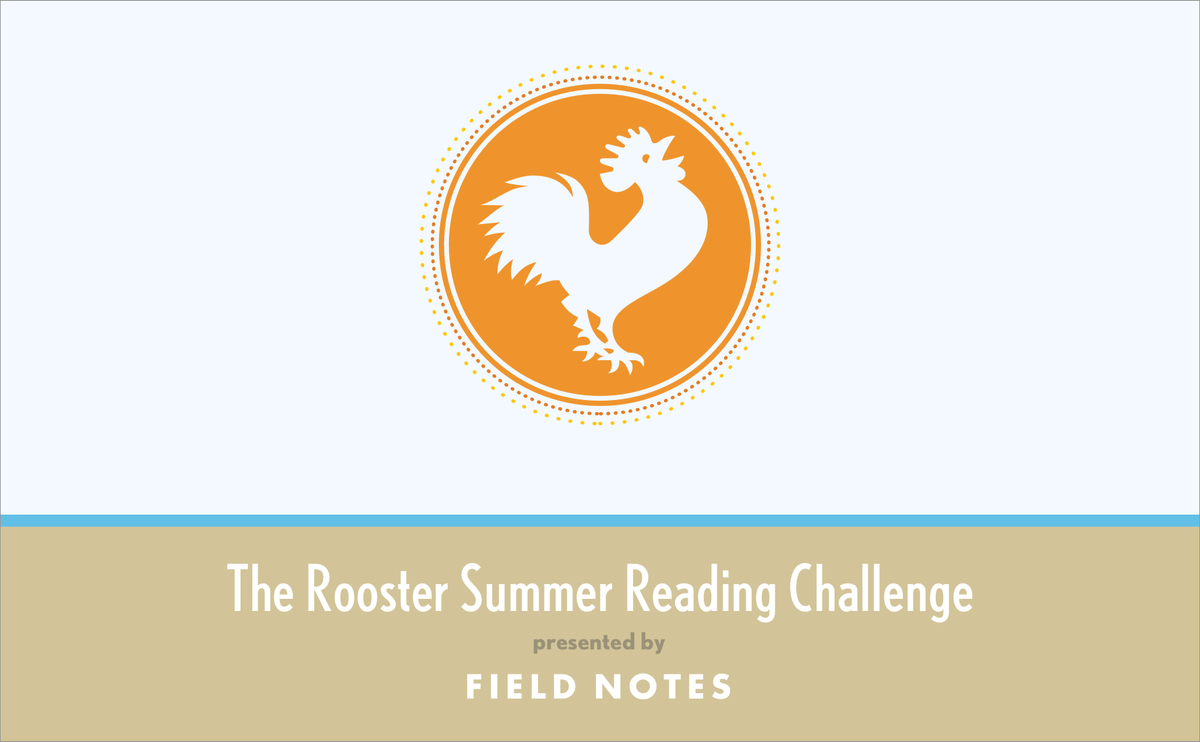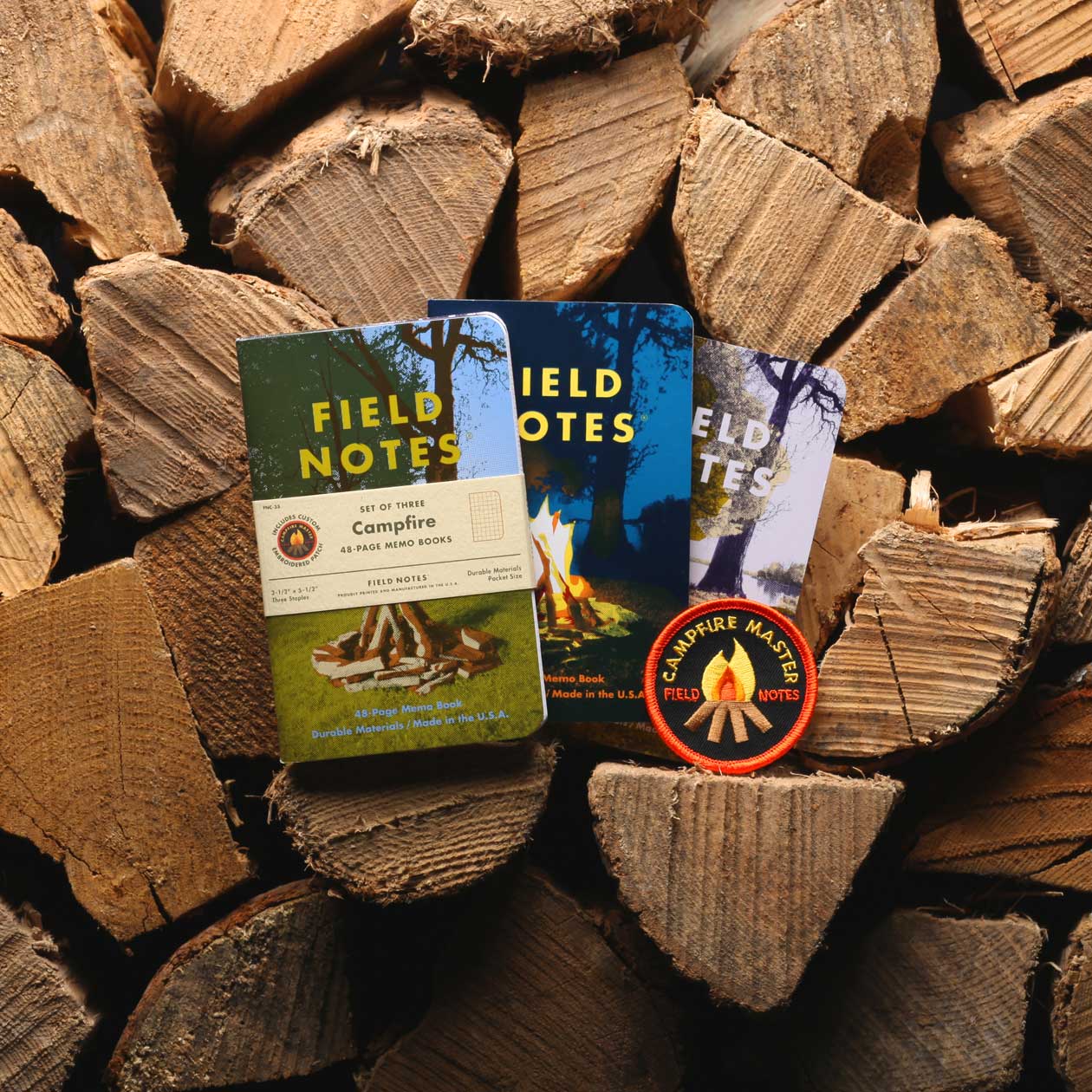The Rooster Summer Reading Challenge: Week Six
We're now at the halfway point in our July matchup—and the Rooster Summer Reading Challenge. This week we're joined by novelist Amelia Gray as we finish off Ill Will.

Welcome to the Rooster Summer Reading Challenge, brought to you by The Morning News Tournament of Books and our presenting sponsor, Field Notes. All summer long, we’re reading two novels a month and reconvening on Wednesdays to discuss the books. Joining our chats is a monthly guest judge, who at month’s end decides which title heads to our summer championship on Aug. 30—when you choose which book gets an automatic berth in the 2018 Tournament of Books.
For July we’re reading Ill Will by Dan Chaon (selected by the ToB Committee) and Marlena by Julie Buntin (chosen by Rachel Khong, who will be joining us in August), with novelist Amelia Gray.
- Plan your summer reading: Marlena (first half by July 19, finish by July 26); Temporary People (first half by Aug. 2, finish by Aug. 9; Fever Dream (first half by Aug. 16, finish by Aug. 23)
- Catch up on previous chats: A Separation first half, second half; The Night Ocean first half, second half; Ill Will first half
- Jump into this week’s discussion in the comments
Last week we read the first half of Ill Will, and this week we’re on to its thrilling conclusion.
Rosecrans: Ill Will is now behind us, which means I’m allowed to dump a truckload of spoilers. The old crime, the one involving young Dustin’s parents, aunt, and uncle, was likely a murder-suicide by Dustin’s uncle. For the new crimes, involving a serial killer, our criminal is Aqil—best buddies with the older Dustin—who likes to stick young men in “sensory-attenuation tanks,” including Dustin’s son Aaron. Also, Dustin kills Rusty, then goes missing. Finally Dustin’s other son Dennis, who believes his father was a sociopath, drives to Nebraska to identify his father’s body.
Amelia Gray is the author of five books. Her fiction and essays have appeared in the New Yorker, the New York Times, the Wall Street Journal, Tin House, and VICE. Her new novel, Isadora, was published on May 23.
Rosecrans Baldwin is the author of You Lost Me There and Paris, I Love You but You're Bringing Me Down. His nonfiction appears in a variety of magazines, most often in GQ. He co-founded TMN with publisher Andrew Womack in 1999. His latest novel, The Last Kid Left, was published on June 7.
I gotta say, any difficulties I had getting into the story up front were wiped out pretty quickly. I think I finished the last 200 pages in a single go—and really enjoyed the way out, especially all the time we spent with Rusty’s perspective. How did the book finish for you, and are you thinking about investing in a sensory-attenuation tank?
Amelia: It really was nice to finally get into Rusty’s point of view right as I was starting to tire of Dusty’s. It took off for me too. I found I was doing less of the thoughtful pondering and highlighting and rolling ideas around and more ripping through to get to the answers. And yes! Sensory deprivation seems like a terrifically cost-effective staycation, particularly if you’re looking to get murdered at the end of it. Sounds way better than camping, anyway.
Rosecrans: A thriller, even a literary one, carries different expectations than straightforward literary fiction. The mystery needs solving, the loose ends must be tied. Did this book meet your expectations (assuming you had them)? Do you like a book to wrap up neatly?
Amelia: I was going in on this last time about Threats, a book I wrote with the idea that there would be multiple avenues of potential and various things that could happen. Ultimately, though, I wonder if only one avenue can exist in the reader’s mind; certainly when I think back on my own book, I have only one idea of what happened. Maybe two.
But yes, unless the work is really playing with expectations, unless there’s something purposeful there beyond some basic unwillingness to commit to a plot line, I do tend to like conclusions to be reached. My least favorite story (and I should know because I used to write these) is the story where the protagonist is standing on a precipice with two choices to make. Make the choice, asshole!
It makes me wonder though, can you think of any books with multiple avenues that have stuck with you? Or do they stick with you because you impart your own ending? I feel like we had this conversation about The Sopranos.

Field Notes Limited-Edition for Summer is Campfire. Campfire features three original photos that have been line-screened and carefully spot-printed, for a vintage feel, and each pack comes with a custom “Campfire Master” patch, ready for your scout sash or messenger bag.
Rosecrans: Off the top of my head, conclusions that have multiple endings that are clear don’t stand out so much as books that don’t have satisfying endings—which are most books, and to be honest I don’t really mind them. I don’t find a neat ending, one that’s entirely wrapped up with a twist included, completely satisfying. It’s like dessert. I’m not a dessert person. I’d rather end a nice meal with cheese, or liquor, something savory. Which is another way of saying I don’t want the meal to end, ever, I want the dinner to go all night and into the next morning. Dessert, sweetness, tastes like the end, it tastes like a party ending. I’ll just say it: Dessert tastes like death. In a novel, my favorite spot is always about 75 percent of the way through, when I breathe when the characters breathe, feel the way they feel. Maybe great novel should always disappoint when they finish—what do you think?
Amelia: I did enjoy a Basque meal once in Reno, and at the end of the meal you could choose between cheese and ice cream. There was a real sense while eating that cheese that things could start up again, we might get another round of stews and everything would continue, everyone taking their last few bites impossibly slowly as to extend the night forever. Anyway, you could get DESSERT IS DEATH carved above your door but people might get the wrong idea.
Rosecrans: Maybe I’ll finally get that neck tattoo. So it’s about a week since I put the book down and the story’s lingering. That doesn’t happen to me a lot, not often with thrillers. I think it’s the terrible vulnerability of so many characters here in this book, to have seen their weaknesses so exploited, over and over—Dustin, Aaron. You write about characters similarly taken advantage of—if more by events than anything—in your new novel, Isadora, in the aftermath of a horrific accident in Isadora Duncan’s life. Is that comparison ludicrous? And what, if anything, from Ill Will is lingering for you?
Amelia: I do think that Isadora and Ill Will are cousins in the way that they’re both saying that tragedy can have the effect of pushing people toward their truest selves. I think of the ways in which all the characters in Ill Will were brave—in the face of their own past, their circumstances, their likely future—and how much I wanted them to prevail in the end.
Rosecrans: Final question: How do you feel about Ill Will now that we’re done? Did Dustin’s firm hand in the finale, once more gun-equipped, after he’d been pliable and manipulated for so long, ring true? And would you ever go to see him as a therapist?
Amelia: I’m sad to leave the world of Ill Will. I’ll miss Montgomery most of all. But yeah, someone probably needs to report Dustin to a licensing board. In the end I never was swayed from the idea that Dustin was actually a therapist in name only, like he had lost his right to practice and was just seeing this last guy who still came around out of habit, that anyone else he claimed to work with was a figment of his own addled mind. I loved him in the end, though; sometimes bravery just means looking the thing in the eyes. What about you? Did everyone get their just desserts?
Rosecrans: They got their desserts—dessert is death!—and I read the end at a rapid pace, consuming more than considering, I’ll admit. I admire much about this book, which is sort of what I’m left with. I admire it, I enjoyed it, but I didn’t experience it on a deeper level; I wasn’t moved. So am I the ideal reader? Probably not. But I can think of several people, family and friends, who’d enjoy it deeply.
Andrew: With Ill Will behind us—look out, he’s behind you!—we move on to Marlena. Next Wednesday we’ll discuss the first half, through page 121. See you then!

